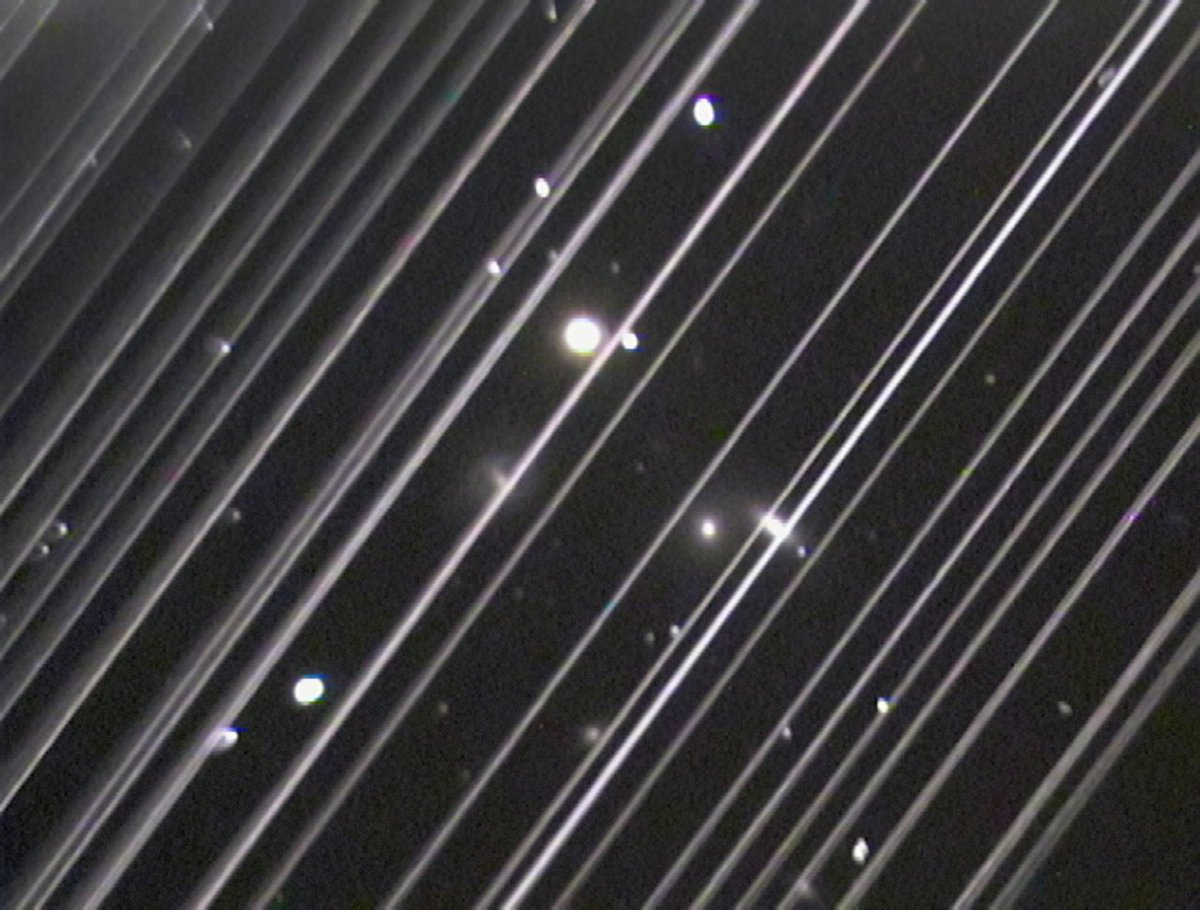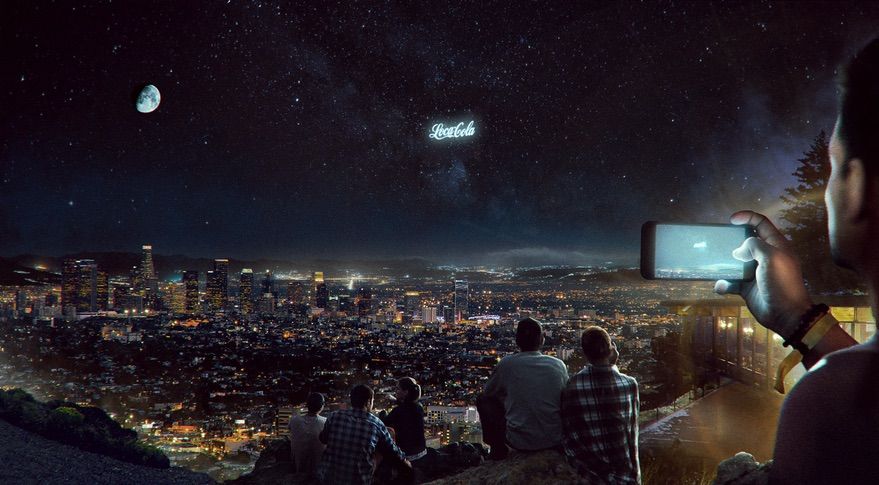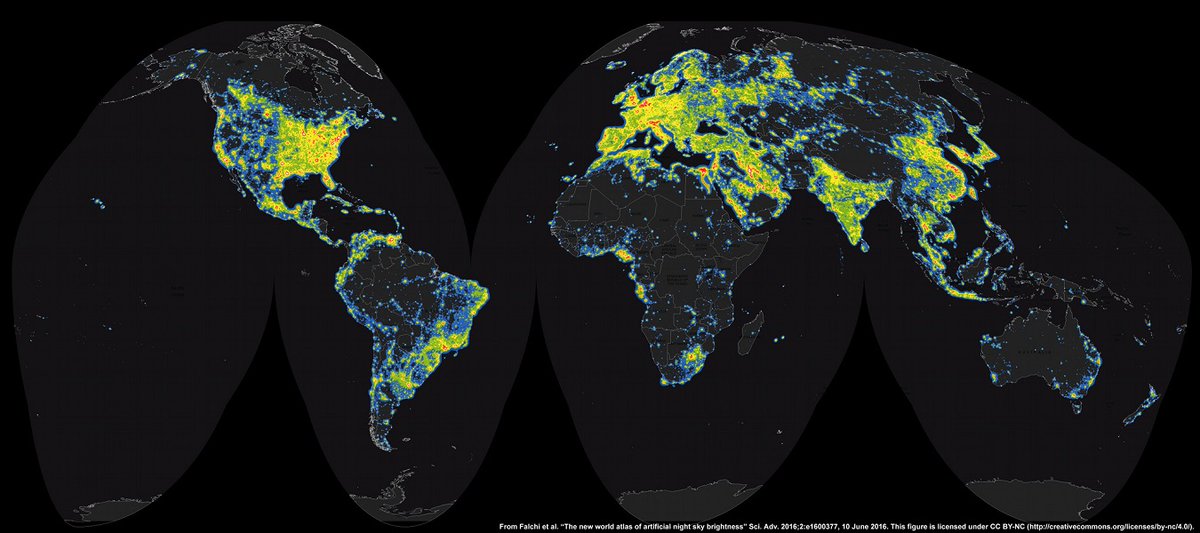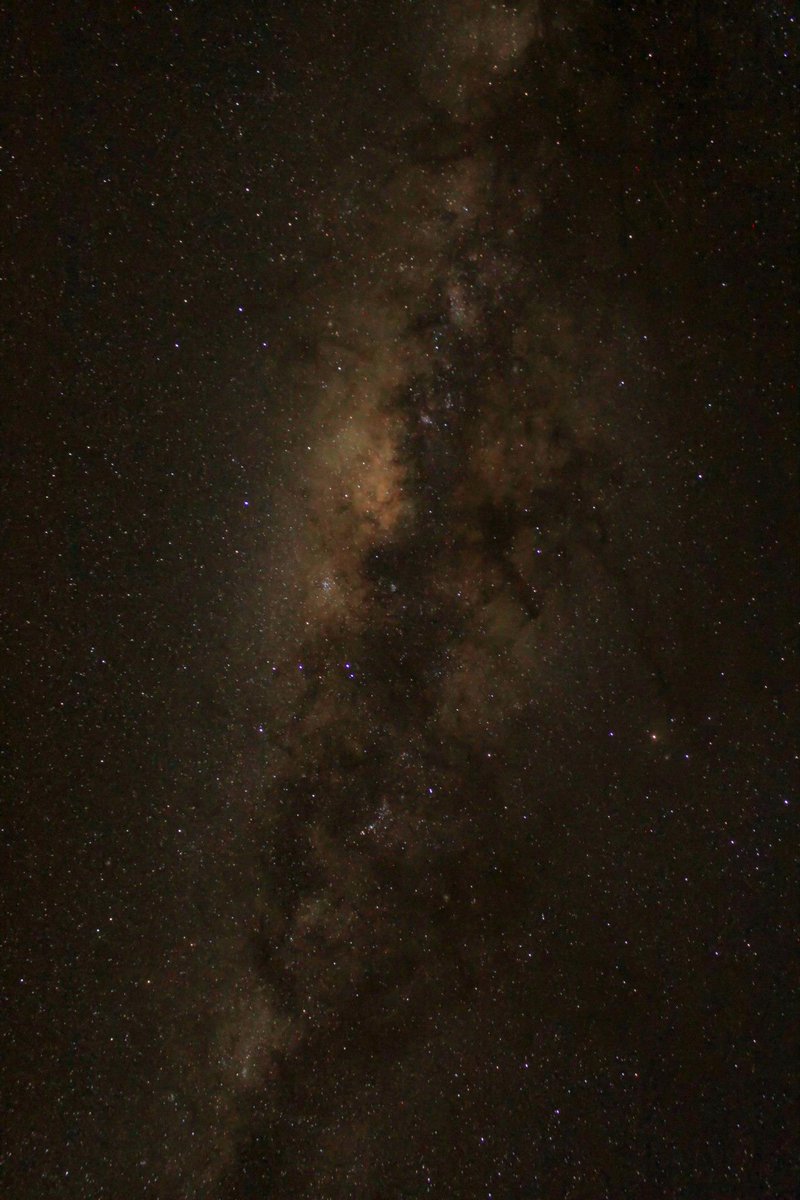The coming weeks are likely to be important for the future of ground-based astronomy in the face of the threat of satellite constellations. How is it a threat, what are astronomers doing, why are these weeks important? Thread  https://abs.twimg.com/emoji/v2/... draggable="false" alt="👇" title="Rückhand Zeigefinger nach unten" aria-label="Emoji: Rückhand Zeigefinger nach unten">
https://abs.twimg.com/emoji/v2/... draggable="false" alt="👇" title="Rückhand Zeigefinger nach unten" aria-label="Emoji: Rückhand Zeigefinger nach unten">
Since 2019, satellite constellations, mainly Elon Musk& #39;s Starlink are being laucnhed to provide internet access all over the globe, with low latency. The first launches have surprised astronomers.
Some observations have become unusable: For example: https://twitter.com/lcjohnso/status/1196370554414125056">https://twitter.com/lcjohnso/...
In the visible range, the larger the field of view of the telescopes, the more they are affected, like the Vera Rubin Observatory: https://arxiv.org/abs/2006.12417 ">https://arxiv.org/abs/2006....
For radio observatories, such as the future SKA in South Africa and Australia, the largest astronomical project of the coming decades, data transmissions from satellite constellations to the ground could be problematic.
These radio observatories are built far from any civilization, in order to probe the confines of the Universe without the pollution of waves due to human activity ... but there these waves could come from the sky!
What are astronomers doing? They met to discuss the impact of these satellites, and of light pollution in general, on astronomy and biodiversity. The conference was attended by ~900 participants, with a summary (of 279 pages) here: http://iau.org/static/publica ...">https://iau.org/static/pu...
Why is this important today? The results of this work will be presented to the COPUOS (Committee on the Peaceful Uses of Outer Space) of the UN from April 19.
What do the astronomers want? That these constellations limit as little as possible our observations of the Universe and our quest for answers to fundamental questions for humanity: how was the Universe formed, does life exist elsewhere? etc...
There are currently international rules for the use of wave frequencies, with some frequencies reserved for science. However, there are no rules for light pollution. We would like to avoid that it becomes the far west!
During this COPUOS Technical Committee meeting, sky pollution will be discussed for the first time, including a presentation of the International Astronomical Union& #39;s report "Dark and Quiet Skies for Science and Society".
This may be our only chance to preserve our sky, for astronomers but also for humanity, in a more or less near future.
What are we doing before this meeting? In France we are actively discussing, via @SF2A_astro, with the CNRS (via @INSU_CNRS), the national center for space studies, the ministries of education, research and industry and foreign affairs.
Internationaly, @IAU_org will be finalising its preparation tomorrow for the presentation at COPUOS next week.
Everyone agrees that it is important to consider the impact of current and future satellite constellations on astronomy. It is important that the industrialists who build or will build these constellations also think about this.
International working groups have been formed to quantitatively measure the impact of these satellites on astronomy and to be able to discuss constructively with industry to mitigate the impact on astronomy.
The CNRS institution, via @INSU_CNRS, will encourage French astronomers to get involved in these studies, in order to preserve our sky, while discussing constructively with all actors in the space field.
The @IAU_org reports show that light pollution (not only from satellites) has an impact on astronomy, but also on biodiversity and human health.
Thank you for sharing to raise awareness on the importance of preserving our sky, which is arguably humanity& #39;s most beautiful common heritage! We hope that the next meetings at COPUOS of the United Nations will help to protect the starry sky!

 Read on Twitter
Read on Twitter " title="The coming weeks are likely to be important for the future of ground-based astronomy in the face of the threat of satellite constellations. How is it a threat, what are astronomers doing, why are these weeks important? Thread https://abs.twimg.com/emoji/v2/... draggable="false" alt="👇" title="Rückhand Zeigefinger nach unten" aria-label="Emoji: Rückhand Zeigefinger nach unten">" class="img-responsive" style="max-width:100%;"/>
" title="The coming weeks are likely to be important for the future of ground-based astronomy in the face of the threat of satellite constellations. How is it a threat, what are astronomers doing, why are these weeks important? Thread https://abs.twimg.com/emoji/v2/... draggable="false" alt="👇" title="Rückhand Zeigefinger nach unten" aria-label="Emoji: Rückhand Zeigefinger nach unten">" class="img-responsive" style="max-width:100%;"/>






